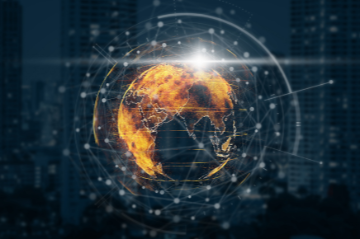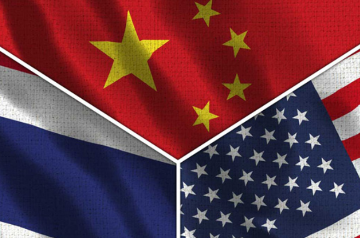Chinese President Xi Jinping is amassing power at home at an unprecedented pace, and at the same time, he is struggling to showcase the potency of China’s much- vaunted comprehensive national power. The more aggressive Chinese tactics become, the more complicated the strategic picture of Beijing’s ambitions will get. Xi wants the world to know that China has finally arrived, as it were, but the world increasingly seems more interested in the pathway to that arrival.
Last week, at a special virtual summit between China and ASEAN states to mark three decades of dialogue relations, Xi was seen trying to reassure Southeast Asian nations that Beijing will not bully its smaller neighbours. Underscoring that “China was, is, and will always be ASEAN’s good neighbour, good friend and good partner,” the Chinese president made it a point to display “unswerving” support for ASEAN unity and centrality, and for the group playing a bigger role in regional and international affairs. There was also aid from Beijing in terms of covid vaccines and funds to support the grouping’s pandemic response.
After more than 30 years of diplomatic and economic investment in the ASEAN project, one may have thought that coercion and bullying by its biggest member would not need to be a topic of discussion.
But clearly not. In China’s case today, every relationship is about coercion. And ASEAN is also trying to push back in its own subtle ways. ASEAN leaders, for example, did not relent and yield to Chinese lobbying that the Myanmar ruling junta’s chief Min Aung Hlaing be allowed to attend the session, and forced Nay Pyi Daw (its capital) to send a non-political representative instead. The joint statement that was issued after the summit reaffirmed the importance of upholding international law, including the 1982 United Nations Convention on the Law of the Sea, and a commitment to freedom of navigation in the South China Sea, as also to freedom of flights over this sea. This was in sync with the ASEAN Outlook on the Indo-Pacific, a geography that China continues to menace in various ways.
Just a few days before Xi was talking about not being a bully, his country’s coast guard was blocking boats carrying supplies to the Philippines’ military stationed in the disputed Spratly Islands, and was even firing water cannons at these vessels.
Such soft balancing against China by some of its closest partners in the region may not really have any substantive impact on the ground. Beijing continues with its aggression in the South China Sea. It has been asserting its claims in contested waters increasingly through the use of grey-zone tactics for which others are yet to find an adequate response. The use of militia fleets to push its claims in disputed territories grants Beijing the benefit of plausible deniability, even as ASEAN member states find it hard to present a united front against such brazen attempts at territory grabbing. Just a few days before Xi was talking about not being a bully, his country’s coast guard was blocking boats carrying supplies to the Philippines’ military stationed in the disputed Spratly Islands, and was even firing water cannons at these vessels. While the Philippines raised this issue at the summit, other nations were content with generalities.
This grey-zone warfare of China has also been on full display when it comes to Taiwan, where there have been repeated incursions by China’s air force in the southwestern part of Taiwan’s air defence identification zone, or ADIZ, close to the Taiwan-controlled Pratas Islands. It is clearly an attempt to test Taiwan’s defences as well as red-lines of the US, and Beijing appears willing to play this dangerous game of escalation, raising tensions across the Taiwan Strait, to challenge Washington’s credibility as a reliable security partner in the region.
With the covid pandemic showing no signs of abating anytime soon, China’s role in the original outbreak of Sars-CoV-2 infections is still a major topic of debate. Taking aim at China’s initial response, the US has been quick to praise South Africa for quickly identifying a new strain of the virus called Omicron and sharing this information with the world. The US State Department said: “Secretary
Blinken specifically praised South Africa’s scientists for the quick identification of the Omicron variant and South Africa’s government for its transparency in sharing this information, which should serve as a model for the world.” Much as China would like the world to move on, China’s lack of transparency on the origins of the novel coronavirus, which was first detected in December 2019 in the Chinese city of Wuhan, will continue to shape global perceptions of China for the foreseeable future.
Taking aim at China’s initial response, the US has been quick to praise South Africa for quickly identifying a new strain of the virus called Omicron and sharing this information with the world.
Xi Jinping is morphing into Emperor Xi at home. His third five-year term was formalized by a landmark resolution of the Communist Party of China earlier this month that places him alongside Mao Zedong and Karl Marx in the pantheon of socialist greats. With all this power, Xi has managed to marginalize his opponents within the country. But abroad, his power is yet to find any obvious purpose. If the purpose of Chinese power is to emerge as the undisputed leader of the world, then Beijing’s actions over the past few years are beginning to produce a set of reactions from various quarters that might make it difficult for Xi to achieve his global agenda.
President Xi Jinping’s agenda is slowly but surely getting unmasked and brute force may no longer be able to deliver.
This commentary originally appeared in Live Mint.
The views expressed above belong to the author(s). ORF research and analyses now available on Telegram! Click here to access our curated content — blogs, longforms and interviews.




 PREV
PREV


